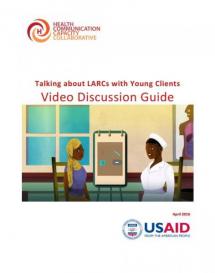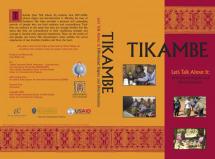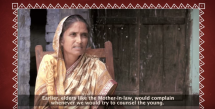Suaahara Nutrition Program Videos
The Suaahara (“good nutrition”)program works with the Government of Nepal’s existing systems and supports the Government in addressing undernutrition and related health issues of women and children under-two years of age. At the community level, Suaahara mobilizes both health and non-health sectors such as community health workers, female community health volunteers, mothers groups, social mobilizers, agricultural extension workers and citizen awareness centers to bring about positive behavior change.
Working through multiple sectors (e.g., health, agriculture, and water, sanitation and hygiene) and through national and local Government structures, Suaahara is dedicated to improving the health and nutritional status of mothers and young children during the 1,000 days Suaahara Program.
Suaahara uses a rigorous monitoring and evaluation system in order to assess the impact of the multi-sector approach to addressing stunting.
These videos demonstrate proper food preparation, nutrition information, and care of livestock:
- Optimal breastfeeding
- Food Demonstration
- Poultry Care
- Feeding the Sick Child
- Complementary Feeding
- Rewarding Ideal Family
- How to Make Tasty Jaulo for Complementary Feeding of an Infant
- How to Make Tasty Food out of Pumpkin for Complementary Feeding of an Infant
- How to Make Super Flour for Complementary Feeding of an Infant
- Key Life Event – After 6 months
- Key Live Event – Baby is Born
- Key Life Event – Pregnancy
- Citizen Awareness Centers
There is also a video about the project in general – Suaahara in Nepal.
Source: USAID
Date of Publication: March 25, 2019
SIMILIAR RESOURCES
Tools
Examples
- Suaahara Training Guidelines and Participant Handbooks
- Maternal Newborn Child Health - Nutrition Quality Improvement Tools
- Suaahara Health Facility Operation and Management Committee Capacity Building Training and Operation Guidelines
- GESI Toolkit
- Love, Children and Family Planning: Seven Discussion Guides for Christian Small Groups
- Zika and Pregnancy: Questions and Answers
- Healthy Timing and Spacing of Pregnancy Fact Sheet
- Beyond the ABCs of FTPs: A Deep Dive into Emerging Considerations for First Time Parent Programs
- Family Planning Discussion Topics for Voluntary Counseling and Testing
- COVID-19 Communication Materials for the Americas










